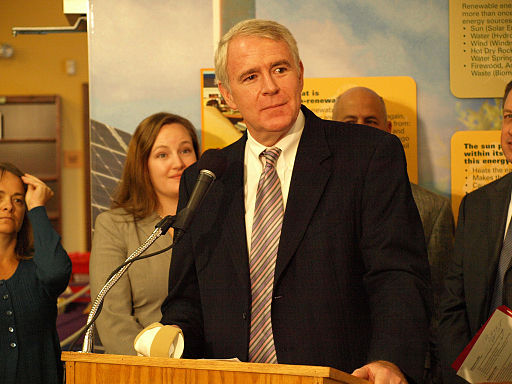Milwaukee’s mayor, Tom Barrett, is planning to give city workers a pay raise to make up for the increased percentage of their paychecks that must be contributed to the pension system.
The increased pension contributions are a part of Wisconsin Gov. Scott Walker’s Act 10, which lowered pension costs for the state but shifted more expenses to employees.
From the Milwaukee Journal Sentinel:
The City of Milwaukee’s proposed 2015 budget would give pay raises of 3.9% to 2,331 workers next year to compensate them for state-mandated pension contributions, Mayor Tom Barrett said Monday.
The pay increases would cost the city $4.8 million, according to figures released Monday. The city also will eliminate the practice of mandatory furlough days as a budget-saving measure for all non-uniformed employees, at an additional cost of $2.7 million.
Those funds come from the $8 million in savings the city gained from not paying the employee pension contribution in 2015 for the 2,331 workers, according to Budget and Management Director Mark Nicolini.
Barrett said the employees deserve the boost in pay as compensation for the pension contributions after going without wage increases in 2011 and 2012 and contributing more toward health care costs in recent years.
Gov. Scott Walker’s signature change in public employee labor law, known as Act 10, bars municipalities from paying the employee share of pension contributions. So all local government employees — except firefighters and most law enforcement officers — are required to contribute half the cost of their pensions, under the law.
In Milwaukee, that amounts to 5.5% of a city worker’s pay for those employees hired before Jan. 1 of this year, Nicolini said.
The city council president agreed with the budgeted raises. From the Journal Sentinel:
Common Council President Michael Murphy said Monday he agreed with the mayor’s proposal. Non-uniformed employees have steadily lost income in the last several years when you consider the lack of raises and higher health care contributions, Murphy said.
“To attract and keep good employees, you can’t, year after year, tell them they are going to be making less money,” he said. “We have to compete with the private marketplace” for new hires.
The Wisconsin Supreme Court upheld the legality of Act 10 in a July ruling.
Photo By WisPolitics.com via Wikimedia Commons
